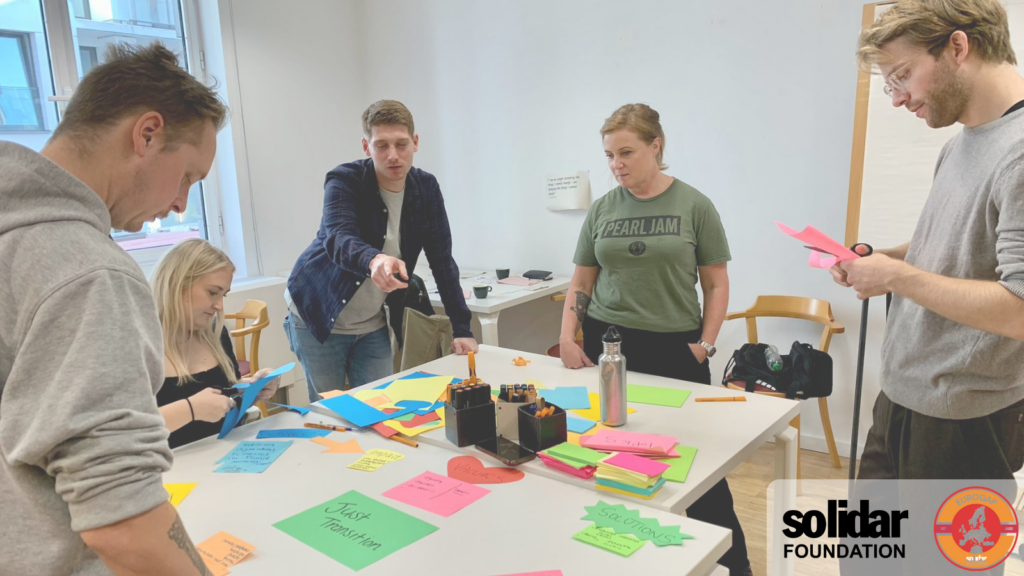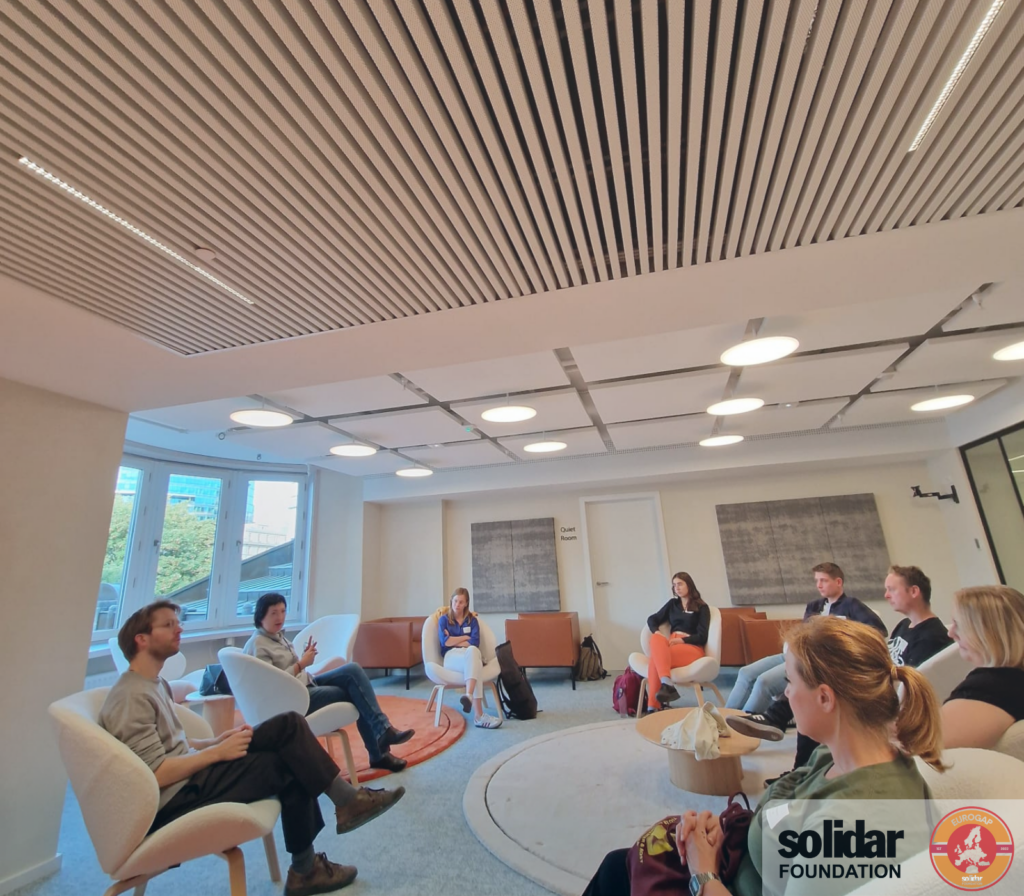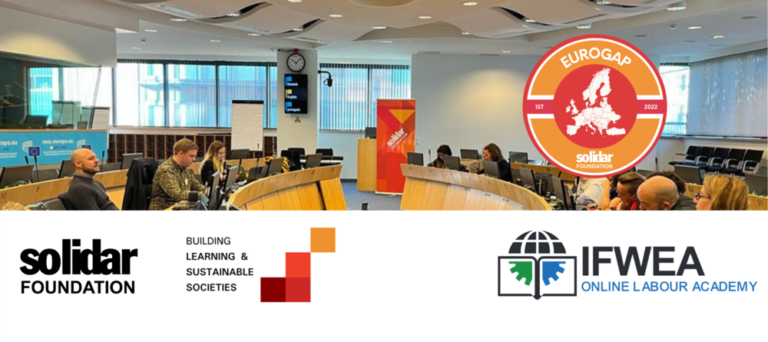EUROGAP training programme: second edition

To bridge the gap between the EU and its citizens and to strengthen the cooperation between SOLIDAR Foundation and its members, SOLIDAR Foundation hosts EUROGAP, flagship programme aimed at capacity building and shaping political understanding of European cooperation.
In the second edition of the EUROGAP programme, carried out on 9-13 October, participants from the member organisations ABF (Sweden), WEA (United Kingdom) and Willi-Eichler-Akademie (Belgium/Germany) came to Brussels to immerse in the training, learn about SOLIDAR’s core mission of achieving social justice through just transition while getting acquainted to the European Union at its heart.
Throughout this edition, participants engaged with local stakeholders, such as Tatjana Babrauskienė (EESC member, Workers’ Group) who insightfully presented the work of the EESC and its role in promoting civil society’s input in policymaking. Another session was focused on the Young European Socialists (YES), where Sofie Amalie Stage (Secretary General) presented YES, the work they do and the role the group has at the European level as well as their cooperation with their local counterparts.

During a visit to the ETUC, discussions with Tea Jarc (Confederal Secretary) revolved around trade unions as allies of civil society and education workers, and the current challenges that need to be tackled considering the upcoming elections. Tea talked through the values of trade unions and how they concretise through action, such as informing the voters about the EP elections for them to make aware decisions, as well as promoting the policy agenda for adequate minimum wage or the directive on gender pay gap among the current and soon-to-be elected policymakers.
Besides learning about the role of the EU institutions, its legislative procedure and practices of advocacy among the civil society, the participants actively engaged in activities that brought forward their ideas on how to strengthen SOLIDAR & SOLIDAR Foundation’s network. Moreover, they presented their local realities, not only in terms of work done in the field of education, but also local practices related to just transition and sustainability. While SOLIDAR & SOLIDAR Foundation learns from the members, the members are carrying the learning outcomes back to the home organisations, hence creating a continuous learning hub benefiting all parties to successfully achieve the common goals.
Sebastian Hühne, on behalf of Willi-Eichler-Akademie, on the EUROGAP training:
Attending EUROGAP was an intense and inspiring experience. The workshops, meetings, events, and chats with other attendees from across Europe gave me many insights about how our local educational work is connected to the larger struggle for a sustainable and just future, and what we can do in our everyday work to advance this shared mission. The sessions were expertly moderated. We were able to share our experiences, discuss challenges, and explore solutions first-hand and learn a lot from each other.
EUROGAP also helped me get a grasp of EU institutions like the European Parliament, or the European Economic and Social Committee, and how they can further the interests of civil society organisations like ours in very practical ways. I especially appreciated the face-to-face meetings with key actors at the European level, like the representatives of the Young European Socialists, or the European Trade Union Confederation, which put faces and context to organisations that would have otherwise seemed opaque to me.
All in all, I loved the experience, and would recommend anyone to join the next edition.
The training employed inspiring tools, such as the power mapping analysis table. This tool enables mapping the balance of forces and powers to strategise a successful campaign. The brainstorming element of this exercise includes identifying allies and opponents, and the participants created such a table based on the concept of just transition. Critical thinking was also at the core of the training, enabling the exploration of ways to successfully advocate and communicate for education policies, to be used as tools to improve our society in the long run. Moreover, the participants exchanged insights related to the question of how to design education that inspires a change in values and attitudes. The discussion was framed by the matter of urgency, given the climate catastrophe that the world faces.
Next EUROGAP edition is planned to take place before the EU elections, so stay tuned!



